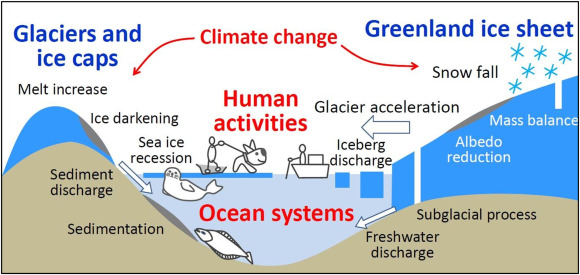This book chapter advances SDG 3 and 10 by discussing the importance of social support and psychological flexibility to act as a buffer between the effects of COVID-19 on psychological distress and mental health.
This book chapter advances SDG 3 and 10 reviewing the extent to which coronavirus lockdown and restrictions have affected the life of the people of Ghana
This book chapter advances SDG 3 and 10 by exploring the gap within research literature in which the intersectional complexities of South Asian Muslims lie by examining the historical and geopolitical contexts of South Asian Muslim experiences in the United States. This chapter discusses the ways in which contemporary South Asian Muslim American experiences are further complicated when navigating additional marginalized identities such as gender and sexual orientation, age and generational influences, disability status, class, and national origin.
Elsevier,
Community Mental Health Engagement with Racially Diverse Populations, May 2020, Pages 15-48
This book chapter advances SDG 3 and 10 by discussing the issues currently driving mental healthcare disparities in the Latinx population and how these approaches can provide a viable way to reduce them.
Diseases of the Nervous System (Second Edition), 2021, Pages 81-107
This book chapter advances SDG #3 and #10 by introducing the basic foundation of aging, dementia and Alzheimer Disease, including clinical presentation, diagnosis and epidemiology.
Environments along the coast of Greenland are rapidly changing under the influence of a warming climate in the Arctic. To better understand the changes in the coastal environments, we performed researches in the Qaanaaq region in northwestern Greenland as a part of the ArCS (Arctic Challenge for Sustainability) Project. Mass loss of ice caps and marine-terminating outlet glaciers were quantified by field and satellite observations. Measurements and sampling in fjords revealed the important role of glacial meltwater discharge in marine ecosystems.
This book chapter advances SDG #3 and #10 by providing therapeutic strategies that can be employed in clinical trials for AD in DS will be discussed as well as their underlying scientific rationale.
This book chapter advances SDG #3 and #10 by providing a brief history of PET imaging and the radiotracers that have had a significant impact for measuring the three signature AD-related neuropathologies related to AD and provides an overview of the research utilizing PET imaging in the DS population
This book chapter advances SDG #3 and #10 by discussing the advantages of performing genetic studies in people with DS, and then discussing the role of reported genes that are known to be associated with AD risk in adults with DS or in the general population. It also discusses how future longitudinal multiomic and imaging study can enhance our understanding of the biology of AD.
Elsevier,
Alzheimer’s Disease: Understanding Biomarkers, Big Data, and Therapy, Volume , 1 January 2021
This book chapter advances SDG #3 and #10 by discussing the operational aspects of deep learning solutions for Alzheimer’s disease, including the review of the advantages and limitations of using deep learning, and future directions on the applications of deep learning to Alzheimer’s disease.

